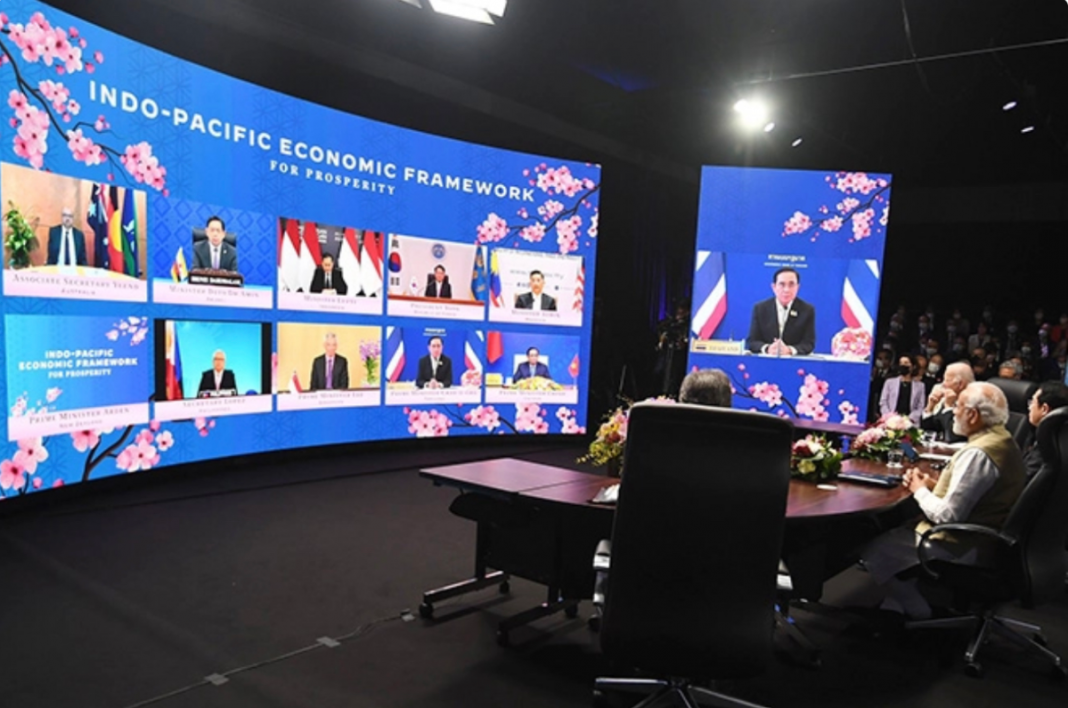Tokyo, 5 June 2022 (TDI): In an intent to strengthen the country’s influence in the Indo-Pacific region, United States, President Joe Biden launched the Indo-Pacific Economic Framework (IPEF) for Prosperity along with other 12 regional counterparts.
It was launched at a public event in Tokyo, Japan on May 23, 2022. This innovative agreement is intended to achieve healthier and more sustainable economic relations between the thirteen members.
American National Security Advisor, Jake Sullivan reported that the IPEF’s main focus will be on tackling 21st-century economic challenges.
These challenges include supply chain resilience, clean energy, and anti-corruption. Sullivan highlighted the fact that this differs from a free trade agreement. No free market access or tariff reductions for trade have been established.
The framework is formed by the United States of America (USA) and twelve other members: Australia, Brunei, India, Indonesia, Japan, the Republic of Korea, Malaysia, New Zealand, the Philippines, Singapore, Thailand & Vietnam.
An especially diverse set of economies which represent around 40% of the global GDP and will work cooperatively to strengthen economic ties in a sustainable and innovative manner.
On his official Twitter account, Piyush Goyal, the Minister of Commerce & Industry of India posted about the historic launch of the IPEF.
Launch of Indo-Pacific Economic Framework is historic.
At the Ministers’ meeting, reiterated commitment to free, open & inclusive Indo-Pacific.
India is keen to contribute to supply chain resilience, share experience in payment systems & strengthen clean energy infrastructure. pic.twitter.com/4WiUrxiJ4F
— Piyush Goyal (@PiyushGoyal) May 23, 2022
Trade with the Indo-Pacific braces millions of American jobs and represents nearly 1000$ billion in FDI for the United States of America.
This economic engagement represents great benefits for numerous businesses, workers, and consumers coming from each of the thirteen countries that make part of this framework.
Benefits will be stronger for countries like Vietnam, Thailand, the Philippines & Indonesia which are not known for having optimal economic and social circumstances.
Through this diplomatic initiative, the administration of Joe Biden continues its focal duty in regaining protagonism in the Indo-Pacific region.
I'm a detail-oriented, problem-solving, persistent multitasker. Having a magna cum laude MSc. in Strategic Studies from National Defense University, Pakistan, I believe in peaceful discourse & dialogue and have built my interest in nontraditional security threats.
I am an experienced writer with a primary focus on public policy, environmental security, nuclear strategy, and geopolitics!








